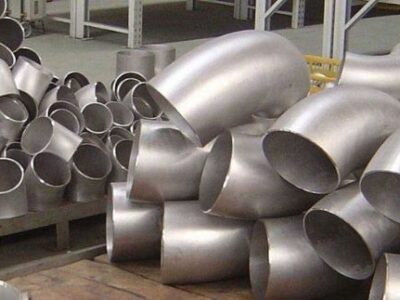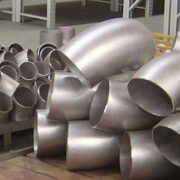
In the wake of natural disasters or unexpected household damages, choosing the best restoration company becomes crucial. The right restoration company can mean the difference between a smooth recovery process and a prolonged, stressful ordeal. This comprehensive guide will help you understand what to look for in a restoration company, how to evaluate potential candidates, and ultimately how to choose the best one near you.
Understanding Restoration Services
What Do Restoration Companies Do?
Restoration companies specialize in repairing and restoring properties that have been damaged by water, fire, mold, and other disasters. Their services often include:
- Water Damage Restoration: This includes water extraction, drying, dehumidification, and repairing water-damaged structures.
- Fire Damage Restoration: Services include soot and smoke removal, structural repair, and odor control.
- Mold Remediation: Identifying and removing mold, preventing further growth, and cleaning contaminated areas.
- Storm Damage Restoration: Repairing damage from storms, including wind, hail, and flooding.
- Emergency Services: 24/7 response to mitigate damage and begin the restoration process as soon as possible.
Importance of Hiring a Professional
Hiring a professional restoration company ensures that the job is done correctly and efficiently. These companies have the necessary expertise, equipment, and certifications to handle various types of damage. They also understand the importance of acting quickly to prevent further damage, such as mold growth or structural deterioration.
Key Factors to Consider
Certifications and Licenses
Ensure that the restoration company holds the necessary certifications and licenses. Key certifications include:
- IICRC (Institute of Inspection, Cleaning, and Restoration Certification): This is a widely recognized certification for restoration professionals.
- EPA Lead-Safe Certification: Necessary for handling homes with lead-based paint.
- State and Local Licenses: Verify that the company complies with local regulations and holds the appropriate licenses.
Experience and Expertise
Experience is critical in the restoration industry. Look for a company with a proven track record of handling similar types of damage. Ask about their experience with specific issues such as water damage, fire damage, or mold remediation.
Insurance and Bonding
A reputable restoration company should be fully insured and bonded. This protects you from any liability in case of accidents or damages during the restoration process. Request proof of insurance and ensure it covers general liability, worker’s compensation, and property damage.
24/7 Availability
Disasters can strike at any time. Choose a company that offers 24/7 emergency services to ensure they can respond immediately and start the mitigation process as soon as possible.
Reputation and Reviews
Research the company’s reputation by reading reviews and testimonials from previous clients. Check platforms like Google, Yelp, and the Better Business Bureau (BBB). A company with consistently positive feedback and high ratings is more likely to provide reliable service.
Detailed Estimates and Transparent Pricing
A good restoration company will provide a detailed estimate before starting the work. This should include a breakdown of costs for labor, materials, and any additional fees. Transparency in pricing helps avoid unexpected charges and ensures you understand what you’re paying for.
Advanced Equipment and Technology
Restoration requires specialized equipment and technology. Ask about the tools and techniques the company uses. Modern equipment such as moisture meters, industrial-grade dehumidifiers, and thermal imaging cameras can enhance the efficiency and effectiveness of the restoration process.
Customer Service and Communication
Effective communication is essential during the restoration process. Choose a company that values customer service and keeps you informed at every stage. They should be responsive to your questions and provide updates on the progress of the work.
Steps to Choose the Best Restoration Company
Step 1: Identify Your Needs
Determine the type of damage you need to address. Whether it’s water, fire, mold, or storm damage, identifying your specific needs will help you narrow down your options to companies that specialize in those areas.
Step 2: Research Potential Companies
Compile a list of potential restoration companies in your area. Use online resources, recommendations from friends or family, and local directories to find reputable candidates.
Step 3: Verify Credentials
Check the credentials of each company on your list. Ensure they have the necessary certifications, licenses, and insurance. This information is often available on their websites or can be provided upon request.
Step 4: Read Reviews and Testimonials
Look for reviews and testimonials from previous clients. Pay attention to both positive and negative feedback to get a balanced view of the company’s performance. Reliable sources include Google, Yelp, and the BBB.
Step 5: Request Estimates
Contact the shortlisted companies and request detailed estimates. Compare the estimates to understand the cost structure and what services are included. Beware of significantly low estimates, as they may indicate subpar service or hidden fees.
Step 6: Evaluate Experience and Expertise
Discuss the company’s experience with similar restoration projects. Ask for examples or case studies of previous work. An experienced company should be able to provide references and showcase their expertise.
Step 7: Assess Customer Service
Evaluate the company’s customer service during your interactions. Are they responsive and helpful? Do they provide clear and detailed answers to your questions? Good customer service is a strong indicator of a reliable company.
Step 8: Make an Informed Decision
After considering all the factors, make an informed decision based on your research. Choose a company that meets your needs, has a good reputation, and offers fair and transparent pricing.
Questions to Ask a Restoration Company
Before hiring a restoration company, ask the following questions to ensure they are the right fit for your project:
- Are you certified by the IICRC or other relevant organizations?
- Do you have the necessary licenses and insurance?
- What is your experience with this type of damage?
- Can you provide references from previous clients?
- What is your response time for emergencies?
- What equipment and technology do you use?
- Can you provide a detailed estimate and timeline for the project?
- How do you handle communication and updates during the restoration process?
- Do you offer any warranties or guarantees on your work?
- How do you handle additional damage discovered during the restoration process?
Common Restoration Scenarios
Water Damage Restoration
Water damage can occur due to various reasons, including floods, burst pipes, and leaks. The restoration process involves:
- Inspection and Assessment: Identifying the extent of the damage using moisture meters and thermal imaging.
- Water Removal: Extracting standing water using industrial pumps and vacuums.
- Drying and Dehumidification: Using air movers and dehumidifiers to remove moisture from the affected areas.
- Cleaning and Sanitizing: Cleaning and disinfecting surfaces to prevent mold growth and eliminate contaminants.
- Restoration: Repairing or replacing damaged structures, including drywall, flooring, and insulation.
Fire Damage Restoration
Fire damage restoration is a complex process that involves:
- Assessment of Damage: Evaluating the extent of fire, smoke, and soot damage.
- Board-Up and Roof-Tarp Services: Securing the property to prevent further damage.
- Water Removal and Drying: Addressing water damage from firefighting efforts.
- Smoke and Soot Removal: Cleaning surfaces and belongings to remove smoke and soot residues.
- Odor Removal: Using specialized equipment to eliminate smoke odors.
- Restoration: Repairing structural damage and restoring the property to its pre-fire condition.
Mold Remediation
Mold remediation requires careful handling to prevent the spread of mold spores. The process includes:
- Inspection and Testing: Identifying the type and extent of mold contamination.
- Containment: Isolating the affected area to prevent mold spread.
- Air Filtration: Using HEPA filters to capture mold spores from the air.
- Removal of Contaminated Materials: Safely removing and disposing of mold-infested materials.
- Cleaning and Sanitizing: Cleaning surfaces with antimicrobial treatments to prevent mold recurrence.
- Restoration: Repairing or replacing damaged materials and addressing the source of moisture that caused the mold growth.
Storm Damage Restoration
Storm damage can be extensive and varied, requiring a comprehensive approach:
- Inspection and Assessment: Evaluating the extent of damage caused by wind, hail, and flooding.
- Debris Removal: Clearing debris from the property.
- Water Extraction and Drying: Removing standing water and drying affected areas.
- Roof and Structural Repairs: Fixing damaged roofs, windows, and other structural elements.
- Cleaning and Sanitizing: Addressing any contamination caused by floodwaters.
- Restoration: Restoring the property to its pre-storm condition.
The Role of Insurance in Restoration
Filing an Insurance Claim
When disaster strikes, one of the first steps is to file an insurance claim. A reputable restoration company can assist you with this process. Here’s how:
- Documentation: They provide detailed documentation of the damage, including photographs and written assessments.
- Estimate: They offer a comprehensive estimate that you can submit to your insurance company.
- Direct Billing: Some companies work directly with insurance providers, reducing your upfront costs and simplifying the claims process.
Working with Your Insurance Adjuster
Restoration companies often collaborate with insurance adjusters to ensure all aspects of the damage are covered. This includes:
- Assessment: Conducting a joint assessment of the damage with the adjuster.
- Negotiation: Advocating for a fair settlement that covers all necessary repairs and restorations.
- Compliance: Ensuring that the restoration work complies with insurance policy requirements.
Understanding Coverage
It’s essential to understand what your insurance policy covers. Standard homeowners’ insurance typically covers:
- Water Damage: From sudden and accidental incidents like burst pipes, but not from gradual leaks or flood damage (which requires separate flood insurance).
- Fire Damage: Including smoke and soot damage.
- Mold Remediation: Often limited and contingent on the cause of the mold.
- Storm Damage: Including wind, hail, and sometimes flood damage, depending on the policy.
Review your policy carefully and consult with your insurance provider to understand your coverage and any exclusions.
Conclusion
Choosing the best restoration company near you involves careful consideration of several factors, including certifications, experience, insurance, reputation, and customer service. By following the steps outlined in this guide, you can make an informed decision that ensures your property is restored efficiently and effectively.
Remember to identify your specific needs, research potential companies, verify credentials, read reviews, request detailed estimates, evaluate experience and expertise, and assess customer service. Asking the right questions and understanding common restoration scenarios can also help you navigate the process more smoothly.
In times of disaster, having a reliable restoration company by your side can make a significant difference in how quickly and effectively you can recover and restore your property. Make sure to choose a company that meets your standards and provides the comprehensive services you need to get your life back on track.
Read others: Budget-Friendly Furnace Repair Solutions: Your Guide to Savings in TX



